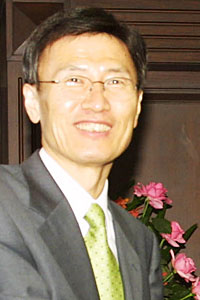
Not content with disturbing the peace in Europe, Russian President Vladimir Putin recently signed a comprehensive strategic partnership treaty with his North Korean counterpart, Kim Jong-un. As troubling to China's leaders as it is to Western officials, the deal is shaking up the geopolitics of Northeast Asia and sending reverberations around the world.
Despite the strategic unease that Mr Putin has provoked, the West must be careful neither to overestimate nor underestimate the treaty's importance. The reasons for Mr Putin's recent trip to Pyongyang -- his first visit in 24 years -- were deeply pragmatic. Russia urgently needs North Korean ammunition, weapons, and labourers to continue waging its war against Ukraine; and North Korea, as isolated as ever, longs for diplomatic support, as well as energy, food, cash, and sensitive military technologies of the kind that only the Kremlin can provide.
For Mr Kim, Russian military technologies are particularly important, because they could enable North Korean nuclear-armed intercontinental ballistic missiles to survive re-entry into Earth's atmosphere and hit any target in the world without being intercepted by missile-defence systems. Moreover, if North Korea can produce quiet nuclear submarines with Russia's help, they would pose a major security risk not just to South Korea and Japan, but also to the United States.
If Russia does provide such sensitive technologies to North Korea, it will upend the military balance on the Korean Peninsula and across Northeast Asia. But a major limitation might prevent Russia from doing so: the incongruity between China's global strategy and those of Russia and North Korea.
China's highest strategic priority is winning the global competition against the US. Its leaders want to replace the US-led unipolar international system with a Chinese-dominated multipolar arrangement, and have tried to drive wedges between the US and its allies, hoping to pull some into its own orbit. China has refrained from providing direct military assistance to Russia, despite their "no-limits" partnership, because it wants to avoid driving European countries fully into America's arms.
Similarly, China has been pursuing more amiable diplomatic relations with South Korea, including by participating in a trilateral South Korea-Japan-China summit in Seoul in May, where it voiced its commitment to the "denuclearisation of the Korean Peninsula". Then, the day before Russia and North Korea concluded their new treaty, China and South Korea held a 2+2 high-level diplomatic security dialogue in Seoul.
China has long pursued stability on the Korean Peninsula, mainly because it wants North Korea to serve as a buffer between it and the South Korean and US troops stationed just south of the demilitarised zone.
In the meantime, Mr Kim will be desperate to get his hands on the highly sensitive Russian military technologies he craves. His primary goal is to establish North Korea as a de facto nuclear state that the international community will just have to accept.
Of course, if Russia does succumb to North Korean pressure and gives Mr Kim the technologies he wants, the US-Japanese-South Korean partnership will grow stronger. There would be more frequent joint military exercises, and more US strategic assets allocated to the peninsula. South Korean public opinion might also shift further toward supporting a domestic nuclear weapons programme or redeploying US tactical nuclear weapons on South Korean territory. These developments would be counter to China's strategic interests.
Despite appearing to be sidelined from the Russia-North Korea strategic marriage, China holds leverage over both smaller powers. China's economy is about nine times larger than Russia's and more than a thousand times the size of North Korea's. Russia probably could not continue fighting in Ukraine if China stopped purchasing Russian energy exports or stopped providing dual-use materials.
Given these dynamics, the West should focus on leveraging the strategic incongruence between China, Russia, and North Korea. For the US, that means maintaining diplomatic engagement with China and deterrence vis-à-vis Russia.
If there is confirmation that Russia has indeed provided sensitive military technologies to North Korea, the US, South Korea, and Japan must take highly visible steps toward strengthening their security cooperation and creating more direct linkages between East Asia and Nato.
Chinese and US strategic interests overlap far more on the Korean Peninsula than they do in Ukraine or the Middle East. Both want stability in the region, which suggests that diplomacy toward that end has a real chance of success if both countries make the effort. ©2024 Project Syndicate
Yoon Young-kwan, a former minister of foreign affairs of the Republic of Korea, is Chairman of the Asian Institute for Policy Studies.
